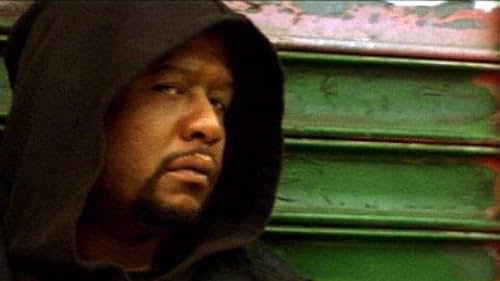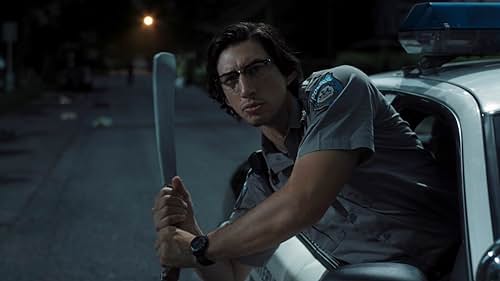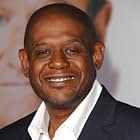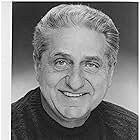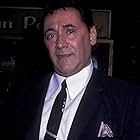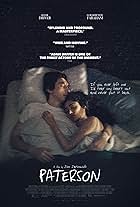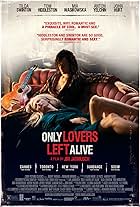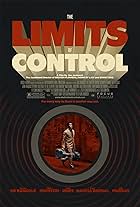An African-American Mafia hit man who models himself after the samurai of old finds himself targeted for death by the mob.An African-American Mafia hit man who models himself after the samurai of old finds himself targeted for death by the mob.An African-American Mafia hit man who models himself after the samurai of old finds himself targeted for death by the mob.
- Awards
- 1 win & 8 nominations
- Director
- Writer
- All cast & crew
- Production, box office & more at IMDbPro
Storyline
Did you know
- TriviaJim Jarmusch stated in an interview that he wrote the role of Ghost Dog specifically for Forest Whitaker, and if Whitaker hadn't taken the role, the film probably would not have been made.
- GoofsBefore killing the hunters, Ghost Dog turns off his car by turning the key in the ignition. When he stole the car, however, he used an electronic device to override the ignition.
- Quotes
Ghost Dog: There is something to be learned from a rainstorm. When meeting with a sudden shower, you try not to get wet and run quickly along the road. But doing such things as passing under the eaves of houses, you still get wet. When you are resolved from the beginning, you will not be perplexed, though you still get the same soaking. This understanding extends to everything.
- Crazy creditsThe second to last person thanked at the credits' close is Akira Kurosawa--the Japanese filmmaker who filmed one of the Ghost Dog's central texts, Rashomon.
- ConnectionsFeatured in Siskel & Ebert: Instinct/The Loss of Sexual Innocence/Limbo (1999)
- SoundtracksIce-Cream
(instrumental mix)
Written by R. Diggs and C. Woods
Produced, mixed and arranged by RZA for Wu-Tang Productions, Inc.
Published by Careers-BMG Music Publishing, Inc.
On behalf of Ramecca Music and Wu-Tang Publishing (BMI)
Featuring Ghostface Killah, Cappadonna and Raekwon
Raekwon appears courtesy of Loud Records
Featured review
Jim Jarmusch is one of the few filmmakers in Hollywood able to make bodies of work that are challenging, thoughtful, and with a distinctive voice. Like the Coen Brothers, it's hard to make his films accessible to the public like many other films at the cineplexes, and that's part of the joy in watching a film such as Ghost Dog. It's such a strange kind of story, but it's a story that extremely well crafted, even when some of the characters aren't developed enough past a certain point. While I can't really say that it's a great film, there are plenty of great things about it.
Such as a pulsing, rhythmically engaging soundtrack (I'm not a big fan of rap and hip-hop, but the artists on here are better than expected) with the RZA behind the seat. Delicate, finite cinematography by Robby Mueller (who's other superb collaboration with Jarmusch was on Down By Law). A performance from Forrest Whitaker, as the dedicated, un-hinged-from reality 'samurai' known as Ghost Dog, which ranks among his best and shows in plain sight that he can carry an action film with patience and cool. And the film also carries a fine sense of humor to many scenes - the fact that these gangsters (one of which Dog's boss) watch more cartoons than take care of business is as funny as the way they interact sometimes. While it tends to streak on parody, in the characters there's still the fascinating Jarmusch has in mixing the cultures.
It's a hard film to classify, for even though it's a martial-arts movie, the only sight of a sword is used for practice and not a blood-bath in Kill Bill. It's a gangster movie, but every five minutes or so there's philosophical notes on the way of the samurai that seems more in place in a (good, thematically engaging) art film than a (good, shoot-em-up) Hollywood actioner. It's a movie about urban-life, yet the only signs of Urbana are shown from a distance, where the only two who will talk to Ghost Dog are a Haitian ice cream guy (who provides a wonderfully weird scene on the roof with Ghost Dog), and a little girl who likes to read. But it's this mixture that can keep a viewer on his or her toes, especially once you realize the psychological state of the lead as much as his spiritual state.
Parts of the film might turn off one group, but the other parts of the film might keep the same group enthralled. In fact, it's as interesting a comparison to be made to Kill Bill (itself a hybrid) as it is in the spiritual and stylistic parent, Le Samourai by Melville. Like those films, at the least, Jarmusch's film asks to be looked at more than once...Anyway, three cheers for Garry "Nobody" Farmer!
Such as a pulsing, rhythmically engaging soundtrack (I'm not a big fan of rap and hip-hop, but the artists on here are better than expected) with the RZA behind the seat. Delicate, finite cinematography by Robby Mueller (who's other superb collaboration with Jarmusch was on Down By Law). A performance from Forrest Whitaker, as the dedicated, un-hinged-from reality 'samurai' known as Ghost Dog, which ranks among his best and shows in plain sight that he can carry an action film with patience and cool. And the film also carries a fine sense of humor to many scenes - the fact that these gangsters (one of which Dog's boss) watch more cartoons than take care of business is as funny as the way they interact sometimes. While it tends to streak on parody, in the characters there's still the fascinating Jarmusch has in mixing the cultures.
It's a hard film to classify, for even though it's a martial-arts movie, the only sight of a sword is used for practice and not a blood-bath in Kill Bill. It's a gangster movie, but every five minutes or so there's philosophical notes on the way of the samurai that seems more in place in a (good, thematically engaging) art film than a (good, shoot-em-up) Hollywood actioner. It's a movie about urban-life, yet the only signs of Urbana are shown from a distance, where the only two who will talk to Ghost Dog are a Haitian ice cream guy (who provides a wonderfully weird scene on the roof with Ghost Dog), and a little girl who likes to read. But it's this mixture that can keep a viewer on his or her toes, especially once you realize the psychological state of the lead as much as his spiritual state.
Parts of the film might turn off one group, but the other parts of the film might keep the same group enthralled. In fact, it's as interesting a comparison to be made to Kill Bill (itself a hybrid) as it is in the spiritual and stylistic parent, Le Samourai by Melville. Like those films, at the least, Jarmusch's film asks to be looked at more than once...Anyway, three cheers for Garry "Nobody" Farmer!
- Quinoa1984
- Jul 8, 2004
- Permalink
Details
- Release date
- Countries of origin
- Official sites
- Languages
- Also known as
- El Camino del Samurái
- Filming locations
- Production companies
- See more company credits at IMDbPro
Box office
- Gross US & Canada
- $3,308,029
- Opening weekend US & Canada
- $166,344
- Mar 5, 2000
- Gross worldwide
- $9,421,594
- Runtime1 hour 56 minutes
- Color
- Sound mix
- Aspect ratio
- 1.85 : 1
Contribute to this page
Suggest an edit or add missing content

Top Gap
By what name was Ghost Dog: The Way of the Samurai (1999) officially released in India in English?
Answer
